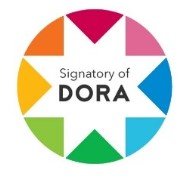Weaving Own Education from Oraliture and Territory: Construction of an Integral Pedagogical Model for the Zenú Indigenous Reserve
DOI:
https://doi.org/10.59654/zc3m6973Keywords:
Indigenous education, Zenú people, decolonial pedagogy, oraliture, epistemologies of the South, educational model.Abstract
This scientific article offers an academic and epistemic reflection on the configuration of an Integral Pedagogical Model from and for the Zenú people, based on the articulation of ancestral knowledge, community educational practices, oraliture, territoriality, and spirituality. Rooted in the epistemologies of the South, the proposal constitutes a decolonial response to the imposition of a hegemonic school system that fails to recognize the cognitive plurality of Indigenous peoples. Through a hermeneutic-interpretative methodological approach, the pedagogical logics of the Zenú people are reconstructed, and a model is designed that integrates epistemic, cultural, territorial, spiritual, and communal dimensions. The proposed model transcends the dichotomy between tradition and modernity, proposing a situated, living, and relational pedagogy, where education becomes an act of memory, dignity, and re-existence.
Downloads
References
Bartolomé, M. T. (2020). Pedagogías interculturales críticas: claves para una educación en contextos de diversidad cultural. Revista Electrónica Interuniversitaria de Formación del Profesorado, 23(1), 123–136. https://doi.org/10.6018/reifop.431851
De Sousa Santos, B. (2021). El futuro comienza ahora: De la pandemia a la utopía. Siglo XXI Editores.
De Sousa Santos, B. (2018). La cruel pedagogía del virus. CLACSO. https://doi.org/10.2307/j.ctv1c76f8s
Escobar, A. (2020). Pluriversal politics: The real and the possible. Duke University Press. https://doi.org/10.1215/9781478012108
Freire, P. (2019). Pedagogía del oprimido (50 aniversario). Siglo XXI Editores.
Giroux, H. A. (2020). Pedagogía crítica y neoliberalismo. Editorial Morata.
Mato, D. (2016). Interculturalidad y descolonización de las políticas públicas en América Latina. Tabula Rasa, 24, 9–33. https://doi.org/10.25058/20112742.n24.01
Mignolo, W. D. (2018). La opción decolonial: del pensamiento eurocéntrico al pensamiento fronterizo. Ediciones del Signo.
Quijano, A. (2007). Colonialidad del poder y clasificación social. Journal of World-Systems Research, 13(2), 240–265. https://doi.org/10.5195/jwsr.2007.228
Rappaport, J. (2021). Más allá de la escritura: Cultura y política indígena en los Andes colombianos. Universidad del Rosario. https://doi.org/10.12804/urosario9789587846470
Rengifo, G. (2020). La palabra que camina: oralitura, memoria y territorio. Fondo Editorial Indígena de Perú.
Tubino, F. (2016). Interculturalidad crítica y política cultural. En C. Walsh (Ed.), Educación y esperanzas en tiempos de incertidumbre (pp. 67–89). CLACSO. https://doi.org/10.2307/j.ctt1n2tv0
UNESCO. (2019). Educación indígena y saberes ancestrales en América Latina. Oficina Regional de Educación para América Latina y el Caribe. https://unesdoc.unesco.org/ark:/48223/pf0000370657
Walsh, C. (2017). Pedagogías decoloniales: Prácticas insurgentes de resistir, (re)existir y (re)vivir. CLACSO. https://doi.org/10.2307/j.ctt1n2tv0
Walsh, C. (2022). Interculturalidad crítica y luchas epistémicas: Prácticas y propuestas desde los pueblos. Cultural Studies, 36(3), 44–63. https://doi.org/10.1177/14744740221126192
Published
Issue
Section
License
Copyright (c) 2020 Revista Digital de Investigación y Postgrado

This work is licensed under a Creative Commons Attribution-NonCommercial-ShareAlike 4.0 International License.
Esta licencia permite a los reutilizadores distribuir, remezclar, adaptar y desarrollar el material en cualquier medio o formato únicamente con fines no comerciales, y solo siempre que se atribuya al creador. Si remezclas, adaptas o construyes sobre el material, debes licenciar el material modificado bajo términos idénticos. CC BY-NC-SA incluye los siguientes elementos:
![]() POR: se debe dar crédito al creador.
POR: se debe dar crédito al creador.![]() NC: Sólo se permiten usos no comerciales de la obra.
NC: Sólo se permiten usos no comerciales de la obra.![]() SA: Las adaptaciones deben compartirse en los mismos términos.
SA: Las adaptaciones deben compartirse en los mismos términos.











